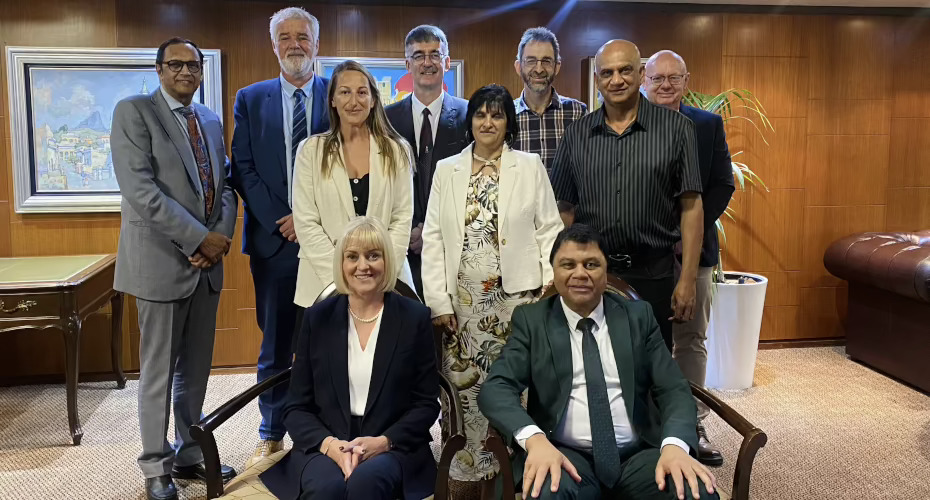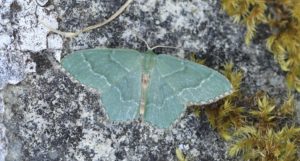Vice-Chancellor strengthens health and conservation research links in visit to South Africa

A delegation from the University of Exeter has met with the British High Commissioner to South Africa during a visit to showcase Exeter’s research successes in the country at the prestigious Oppenheimer Research Conference.
University President and Vice-Chancellor, Professor Lisa Roberts, headed up the Exeter contingent during a six-day visit to the country. As well as meeting the British High Commissioner to South Africa, Anthony Phillipson, she attended the Oppenheimer Research Conference, where Exeter researchers presented their work from a six-year conservation programme.
Just days later, Exeter hosted a high-profile visit from the South African Deputy High Commissioner to the UK, Dineo Mathlako, accompanied by South Africa’s Deputy Minister. Kenneth Morolong.
In Cape Town, the Exeter team met with Oppenheimer Generations Research and Conservation, to foster stronger relationships
At the conference, the Exeter-led Oppenheimer Programme in African Landscape Systems (OPALS) showcased their work, including research on baobab trees and rangeland management on sites run by Oppenheimer Generations Research and Conservation. OPALS aims to investigate and improve land management and ecosystem resilience in Africa. The research is supported by a significant philanthropic gift from Oppenheimer Generations Research and Conservation. Alongside supporting leadership in environmentally sustainable land management across Africa, the programme delivery is built around training opportunities for graduate students, with some joining the delegation.
During the visit, Professor Roberts and the team also visited Exeter Africa Centre for Medical Mycology Unit, a partnership between Exeter and the University of Cape Town, which focuses on generating solutions to deadly fungal infections in Africa.
Later, Professor Roberts met the South African British High Commissioner, to discuss opportunities to promote and disseminate impact.
Professor Roberts and the delegation learned more about research, including research on fungal pathogens in people with HIV, whose weakened immunity makes them highly vulnerable to the potentially deadly infections.
Professor Roberts said the visit was a great success. She said: ““It’s extremely rewarding to see our partnerships focused on greener, healthier, fairer research having such a positive impact in Africa. Our vital conservation partnership was made possible by a generous donation from the Oppenheimer Generations Research and Conservation, and it was an honour to share these successes with both the Oppenheimer family, the British High Commissioner, and the senior delegation visiting Exeter from Africa.
“We are also particularly keen to see our Medical Mycology collaboration with the University of Cape Town flourish, given the huge impact of fungal diseases on sub-Saharan Africa; and we look forwards to exploring future mining opportunities with the University of Pretoria, given our joint strength in this area.”



